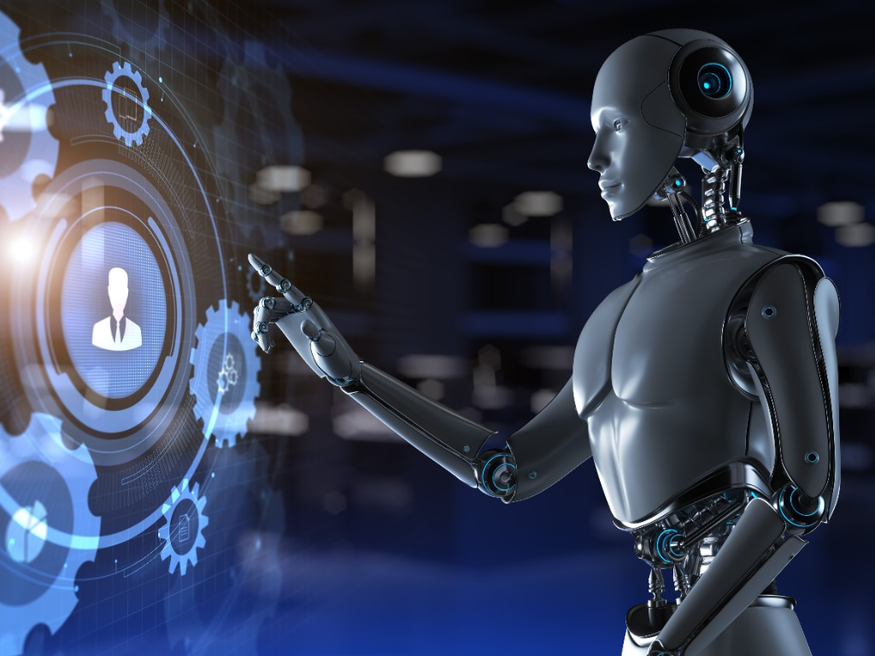Artificial intelligence (AI) tools are everywhere right now, including in the recruiting space. In fact, AI in recruiting, in the way of automation and other tech, has been around for years (it’s likely you’ve used the tools yourself). But now that everyone’s talking about AI, and technology like ChatGPT is advancing rapidly, there are also a lot of questions being raised such as what are the benefits of using AI in recruitment?
A World of Possibilities
Computerworld offers a great overview of AI in recruiting here. The article points to Modern Hire’s fifth annual Hiring Report, which shows that 45% of companies worldwide are using AI to improve recruiting and human resource functions. Nearly three in four organizations boosted their purchases of talent acquisition technology in 2022; 70% plan to continue investing this year, even if a recession arrives. One of their biggest reasons: Improving the quality of hires.
Bret Greenstein, a PricewaterhouseCoopers (PwC) partner and Data Analytics and AI researcher, explains that employers need to identify high-quality job candidates and make hiring decisions quickly, which has upped AI adoption.
“There were a lot of factors that drove this need, from the Great Resignation to the rapid hiring and recovery in 2021 to the recession period now causing a large influx of tech workers into the market,” Greenstein told Computerword. “In all cases, recruiters need better tools to be efficient in matching candidates and ensuring interviews are used efficiently by ensuring candidates are well-matched up front.”
PharmaWeb’s Lucy Walters sees AI in recruiting as a way to save time and money while improving the candidate experience. “HR managers reportedly lose 14 hours per week on tasks that could be automated. One of the benefits of using AI in recruitment is that AI can automate many time-consuming and repetitive tasks in the recruitment process such as CV screening, candidate sourcing, and interview scheduling. This can save you a significant amount of time, helping to keep candidates engaged and ultimately reducing your time to hire,” she says.
HR Dive addresses one of the most talked-about tools in the context of AI in recruiting: ChatGPT.
ChatGPT technology is a learning language model (LLM) that’s being used to help recruiters create better job descriptions, email communications, and slide decks. Some are having great success using ChatGPT to initially screen resumes in different languages and to help in the onboarding process, including tasking the technology to create assessments, quizzes, and training materials.
But There Are Caution Signs Ahead
It’s not all smooth sailing when it comes to adopting AI in recruiting, however. If there are benefits of using AI in recruitment, there are also pitfalls that we should know, however. HR Dive has also covered several areas in which the technology meant to create an even playing field for candidates may actually do the opposite. Here are a few considerations:
LinkedIn Recruiter’s AI transparency is lacking: A study published on March 13 in Nature Machine Intelligence looked at the potential hidden biases of tools like LinkedIn Recruiter that use what’s called an Automated Decision System (a machine using algorithms to make decisions independent of human intervention). The study authors recommend that these platforms use a “nutrition label” of sorts to show how they use AI in recruiting to make their decisions. Until then, do what seasoned recruiters do, as they discovered: Don’t “blindly” trust Boolean search ranks on LinkedIn Recruiter and double-check your results.
Regulations are starting to hit AI in recruiting: New York City has a law going into effect this year restricting the use of AI tools in the hiring process. This doesn’t show the benefits of using AI in recruitment, “While the law is seen as a bellwether for protecting job applicants against bias, little is known to date about how employers or vendors need to comply, and that has raised concerns about whether the law is the right path forward for addressing bias in hiring algorithms,” HR Dive states about using AI in recruiting. It’s not exactly the first law in the books: Illinois has regulated the use of AI analysis of video interviews since 2020.
More about the problem of bias: You may have heard that Amazon scrapped “a recruiting tool — trained to assess applicants based on resumes submitted over the course of a decade — because the algorithm taught itself to penalize resumes that included the term “women’s” in them. As HR Dive points out, tools developed appropriately may be able to help with DEI initiatives, but there are many dangerous pitfalls with using AI in recruiting that can plague good intentions along the way.
“As with other innovations, it’s important to balance tech tools with common sense,” says The HT Group Founder and CEO Mark Turpin. “The benefits of AI in recruitment allows employers to be more efficient and, in some cases, more thorough. But it should never completely replace humans and what a reputable recruiter can do.”




